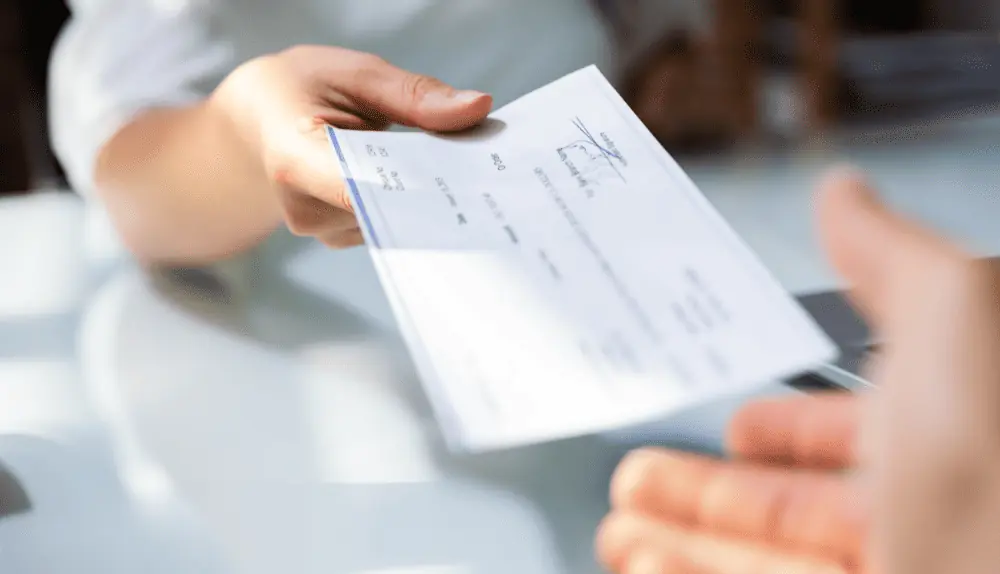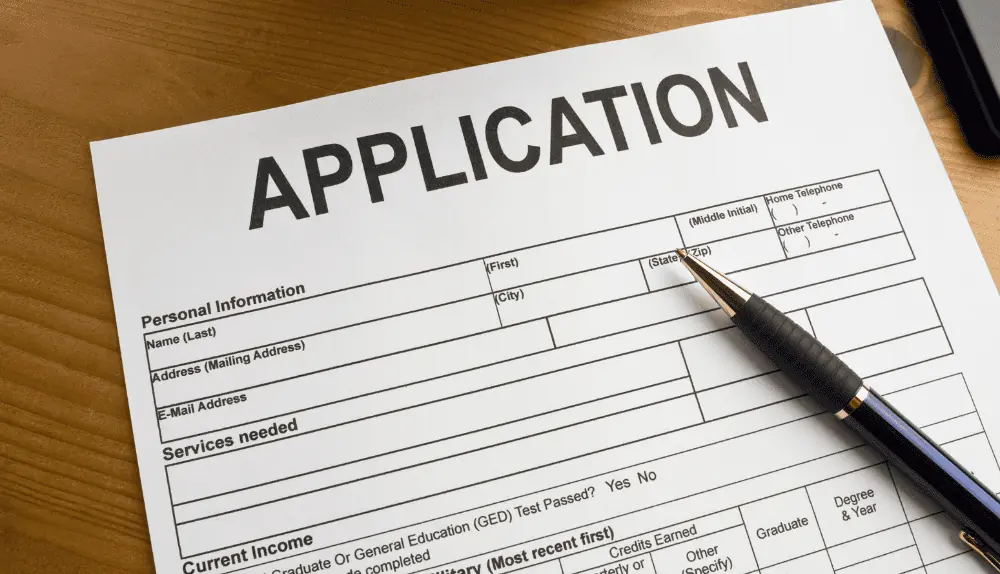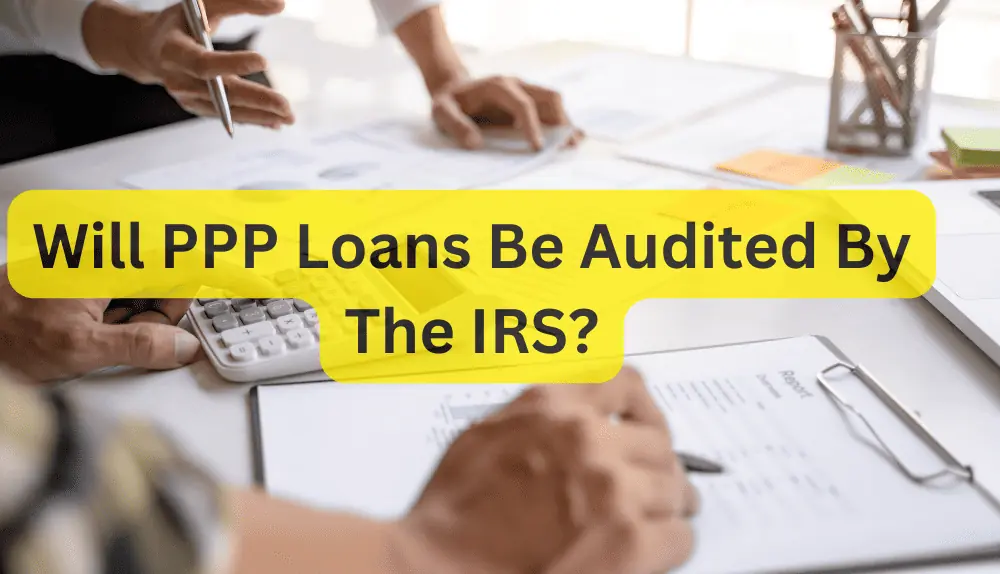In the wake of economic turbulence caused by the pandemic, the Small Business Administration (SBA) initiated the Paycheck Protection Program (PPP) to provide a lifeline to struggling businesses across the United States. With the recent replenishment of PPP loan funds, countless small businesses have found hope in the form of financial assistance. However, the question looms large: will these loans be audited by the Internal Revenue Service (IRS)?
While Treasury Secretary Steven Mnuchin’s announcement that loans exceeding $2 million will face scrutiny has grabbed headlines, the potential for audits extends beyond this threshold. In this uncertain landscape, businesses of all sizes find themselves wondering if a knock on their door from the IRS is imminent. Brace yourself as we delve into the intriguing world of PPP loan audits and unravel the mysteries surrounding their enforcement.
What is a PPP Loan?
A PPP loan, or Paycheck Protection Program loan, is a financial assistance program introduced by the U.S. government in response to the economic challenges posed by the COVID-19 pandemic. The program was designed to provide relief to small businesses, nonprofit organizations, sole proprietors, and self-employed individuals who were financially impacted by the crisis. PPP loans were aimed at helping businesses retain their employees and cover essential expenses like payroll, rent, utilities, and mortgage interest.

These loans were administered by the Small Business Administration (SBA) and offered favorable terms, such as potentially forgivable portions based on specific criteria. The PPP aimed to provide a lifeline for businesses, preserving jobs and supporting economic stability during these unprecedented times.
How Does PPP Loan Work?
The Paycheck Protection Program (PPP) works by providing eligible businesses with loans to cover their essential expenses and retain their employees during times of economic hardship, such as the COVID-19 pandemic. Here’s how the PPP loan process generally works:

Application
Businesses apply for a PPP loan through approved lenders, such as banks or credit unions. The application typically requires providing information about the business, including payroll documentation, tax returns, and financial statements.
Loan Amount Calculation
The loan amount is generally based on the business’s average monthly payroll costs. This includes wages, salaries, benefits, and certain other expenses, subject to certain limitations and guidelines.
Loan Approval
Once the application is submitted, lenders review it for eligibility and completeness. If approved, the lender works with the borrower to finalize the loan documents and disburse the funds.
Loan Use
PPP loans can be used for qualifying expenses, primarily payroll costs, rent, utilities, and mortgage interest. A significant portion of the loan must be used for payroll expenses to qualify for potential loan forgiveness.
Loan Forgiveness
Borrowers may be eligible for loan forgiveness if they use the funds for qualifying expenses and meet specific criteria. To seek forgiveness, businesses must submit documentation demonstrating the appropriate use of the loan proceeds.
Repayment
Any portion of the loan that is not forgiven must be repaid over a designated term, typically with a low fixed interest rate. The repayment terms and interest rates for PPP loans are generally favorable compared to traditional loans.
It’s important to note that specific details, eligibility requirements, and guidelines may vary based on updates and regulations set by the Small Business Administration (SBA) and the government. Businesses are advised to consult with their lenders or financial advisors for the most accurate and up-to-date information regarding the PPP loan process.
PPP Loan Forgiveness
PPP loan forgiveness is a crucial aspect of the Paycheck Protection Program (PPP) and can provide significant relief to businesses that have received these loans. Loan forgiveness allows borrowers to have all or a portion of their PPP loan forgiven, essentially converting it into a grant. Here are some key points to understand about PPP loan forgiveness:
Eligibility
To be eligible for loan forgiveness, businesses must use the loan proceeds for qualifying expenses, primarily payroll costs, rent, utilities, and mortgage interest. At least 60% of the loan amount must be used for payroll costs.
Covered Period
The covered period is the timeframe during which the borrower must use the funds. For most borrowers, this period is either 8 or 24 weeks from the loan disbursement date, allowing flexibility in utilizing the funds.
Forgivable Expenses
Eligible expenses incurred during the covered period can be considered for forgiveness. Payroll costs include wages, salaries, benefits, and certain taxes. Non-payroll costs include rent, utilities, and interest on mortgages.
Employee Retention
PPP loan forgiveness is contingent on maintaining employee and wage levels. Businesses must generally maintain the average number of full-time equivalent employees and not reduce employee salaries or wages by more than 25%.
Forgiveness Application
Borrowers must submit a forgiveness application to their lenders, providing necessary documentation and supporting evidence of eligible expenses. The application process involves completing the appropriate forms and providing payroll and financial records.
Forgiveness Calculation
The forgiveness amount is determined based on the eligible expenses incurred during the covered period, subject to certain limitations. Documentation and records must be maintained to support the forgiveness calculation.
Partial Forgiveness
If businesses do not meet all forgiveness criteria, they may still qualify for partial forgiveness. Any remaining portion of the loan not forgiven must be repaid according to the terms outlined in the loan agreement.
It’s important to note that forgiveness guidelines and requirements may be subject to updates and regulations from the Small Business Administration (SBA) and the government. Businesses should consult with their lenders or professional advisors for detailed guidance on the forgiveness process and ensure compliance with the latest requirements.
How Do PPP Loan Audits Work?
PPP loan audits are conducted by the Internal Revenue Service (IRS) to ensure compliance with the program’s rules and regulations. Here’s an overview of how PPP loan audits generally work:
Selection
The IRS selects businesses for audits based on various factors, including risk assessment, data analysis, and potential non-compliance indicators. The selection process may also consider loans above a certain threshold, such as loans exceeding $2 million, as announced by Treasury Secretary Steven Mnuchin.
Notification
If a business is selected for an audit, they will receive an official notification from the IRS outlining the audit process, requesting documentation, and specifying the timeframe for response.
Documentation Request
The IRS will typically request relevant documents and records related to the PPP loan, including financial statements, payroll records, tax returns, bank statements, invoices, and other supporting documentation. These documents will be used to verify the eligibility of expenses and compliance with program guidelines.
Examination and Verification
During the audit, the IRS will review the provided documentation to verify the accuracy of the information reported by the business. They will assess whether the loan proceeds were used for eligible expenses and in accordance with program guidelines.
Interviews and Interactions
The IRS may conduct interviews with business owners, employees, or representatives to gather additional information or clarify any discrepancies found during the examination process.
Findings and Resolution
Based on the audit findings, the IRS will determine whether there were any violations or non-compliance issues. If violations are identified, they may assess penalties, require repayment of ineligible expenses, or take other appropriate actions.
Appeal and Resolution Process
If a business disagrees with the audit findings, they have the right to appeal the IRS decision. The appeals process provides an opportunity to present additional evidence or arguments to support their case and potentially reach a resolution.
How to Prepare for an SBA Loan Audit?
Preparing for an SBA PPP loan audit is crucial to ensure a smooth and successful process. Here are some steps to help you prepare:
Gather Documentation
Collect all relevant documentation related to your PPP loan, including the loan application, promissory note, loan agreement, and any amendments. Also, gather supporting documents such as payroll records, tax filings, bank statements, invoices, receipts, and other documents that demonstrate the use of loan funds.
Review Program Requirements
Familiarize yourself with the PPP program requirements, guidelines, and eligibility criteria. Understand the permissible uses of funds and the documentation required to substantiate expenses.
Conduct Internal Review
Perform an internal review of your PPP loan and its usage. Ensure that the loan proceeds were used for eligible expenses and in accordance with program guidelines. Verify payroll calculations, document rent and utility payments, and review any other qualifying expenses.
Organize and Label Documents
Organize your documents in a clear and systematic manner, labeling them appropriately for easy reference during the audit. Maintain a comprehensive file that includes all the necessary paperwork.
Perform Self-Audit
Conduct a self-audit to identify any potential issues or discrepancies. Address any areas of concern, rectify errors, and gather additional supporting documentation where needed. This proactive approach can help you identify and correct any non-compliance issues before the audit.
Seek Professional Assistance
Consider engaging a qualified accountant, tax advisor, or legal counsel experienced in PPP loans and audits. They can provide valuable guidance, review your documentation, and advise you on compliance matters.
Familiarize Yourself with the Audit Process
Understand the audit process and what to expect during the examination. Be prepared to respond to information requests, provide clarifications, and participate in interviews if necessary.
Document Communication
Keep records of all communication with the SBA or the IRS regarding the audit. Maintain a log of emails, letters, and phone conversations to ensure clear documentation of your interactions.
Stay Updated
Stay informed about any changes or updates to PPP loan guidelines, regulations, or audit procedures. Regularly check the SBA and IRS websites for the latest information.
Maintain Professionalism and Cooperation
Approach the audit with professionalism, transparency, and cooperation. Respond promptly to requests, provide accurate information, and address any concerns raised during the audit process.
PPP Loan Audit After Forgiveness
Even after obtaining forgiveness for a PPP loan, borrowers should be aware that the audit period may not conclude. The Small Business Administration (SBA) retains the authority to conduct an audit on a borrower’s PPP loan for up to six years following forgiveness. This post-forgiveness audit aims to ensure that the borrower adhered to the program’s regulations and appropriately utilized the loan funds for eligible expenses.
During this audit, the SBA may request additional information or seek clarification on certain aspects. To navigate this process smoothly, borrowers are advised to maintain comprehensive records for a minimum of six years from the loan’s forgiveness date. Having well-organized documentation readily available will facilitate cooperation and help address any inquiries or requests from the SBA.
While loan forgiveness provides much-needed relief, borrowers must remain vigilant and prepared for potential audits to ensure ongoing compliance with the PPP loan program.
What SBA Looks for During a Loan Audit?
During an SBA loan audit, the Small Business Administration (SBA) typically examines various aspects of a borrower’s loan and its usage. While the specifics may vary, here are some key areas the SBA often focuses on during a loan audit:
Eligibility
The SBA verifies that the borrower met all eligibility criteria at the time of applying for the loan. This includes factors such as business size, industry type, employee count, and certification of economic need.
Loan Documentation
The SBA reviews the loan application, supporting documents, and loan agreement to ensure accuracy, completeness, and compliance with program requirements. They may assess the borrower’s financial statements, tax filings, payroll records, and other relevant documentation.
Use of Funds
The SBA examines how the loan proceeds were utilized to ensure compliance with the allowable expenses outlined in the PPP loan program. They scrutinize payroll costs, rent or lease payments, utilities, mortgage interest, and other eligible expenses.
Payroll Documentation
The SBA verifies that payroll calculations are accurate and align with program guidelines. They may request payroll records, tax forms, and documentation of benefits or other compensation provided to employees.
Employee Retention
The SBA assesses whether the borrower maintained employee and wage levels as required by the PPP loan program. They examine records related to employment, layoffs, rehiring, and wage reductions and may compare them against the borrower’s attested certifications.
Loan Forgiveness Calculation
If seeking loan forgiveness, the SBA reviews the borrower’s forgiveness application, supporting documents, and calculations to ensure accurate and appropriate amounts are claimed.
Record-keeping
The SBA assesses the borrower’s record-keeping practices to confirm that all necessary documents are retained and readily available for audit purposes. This includes financial statements, payroll records, bank statements, invoices, receipts, and other relevant documentation.
How Long Will PPP Loans be Investigated?
The duration of the investigation period for PPP loans can vary based on several factors. While there is no fixed timeline, certain parameters can provide a general understanding of the investigation period:
Audit Initiation
Typically, the Small Business Administration (SBA) initiates the PPP loan audit process within one year after the borrower receives loan forgiveness. This initial phase involves the SBA reviewing documentation and conducting the necessary assessments.
Factors Affecting Duration
The investigation period can be influenced by factors such as the loan amount, the industry of the borrower, and any suspicion of fraud or criminal activity. Cases involving larger loan amounts or industries with higher risk profiles may warrant closer scrutiny and potentially longer investigation periods.
Requested Information
If the SBA requests additional information or clarification from the borrower during the audit process, the investigation period may be extended. The time required to gather and provide the requested information can affect the overall duration of the investigation.
Six-Year Timeframe
It’s important to note that the SBA retains the authority to conduct a PPP loan audit up to six years after the loan is forgiven. This extended timeframe allows the SBA to address any potential issues or compliance concerns that may arise even after the loan forgiveness has been granted.
Given these considerations, the investigation period for PPP loans can span several months to potentially a few years, depending on the specific circumstances of each case. It is important for borrowers to maintain accurate records and be prepared to cooperate with the SBA throughout the investigation process.
Final Words
In conclusion, the question of whether PPP loans will be audited by the IRS carries significant weight for businesses that have availed themselves of this crucial financial assistance. While recent announcements indicate a focus on loans exceeding $2 million, the potential for audits extends beyond this threshold. The IRS aims to ensure compliance and accountability in the utilization of PPP loan funds.
Regardless of loan size, businesses must be prepared for the possibility of an audit, understanding that loan forgiveness does not exempt them from scrutiny. By maintaining meticulous records, adhering to program guidelines, and seeking professional advice when needed, businesses can navigate the audit process with confidence and transparency. It is essential for borrowers to stay informed about the latest regulations and guidelines, cooperating fully with the IRS to address any inquiries or requests.
Ultimately, by approaching the potential for audits proactively, businesses can demonstrate their commitment to compliance and financial integrity in utilizing PPP loans.
Frequently Asked Questions (FAQs)
How likely is it for a PPP loan to be audited?
The likelihood of a PPP loan being audited depends on various factors, including loan size, industry, and potential red flags identified during the selection process. Loans above a certain threshold, such as $2 million, may have a higher probability of being audited.
What triggers an IRS audit of a PPP loan?
The IRS may conduct audits based on risk assessment, data analysis, and potential indicators of non-compliance. Loans with larger amounts, discrepancies in documentation, or suspicious activity may raise red flags and trigger an audit.
How long does a PPP loan audit typically take?
The duration of a PPP loan audit can vary depending on factors such as the complexity of the case, the volume of documentation, and the cooperation of the borrower. It can range from several weeks to several months.
What documentation should I retain in case of an audit?
It is essential to maintain comprehensive records, including loan applications, loan agreements, payroll records, tax filings, bank statements, invoices, receipts, and other relevant documentation. These records should be retained for at least six years from the loan’s forgiveness date.
Can I appeal the results of an audit?
Yes, borrowers have the right to appeal the results of an audit. They can present additional evidence, clarify any discrepancies, and provide arguments to support their case during the appeals process.

